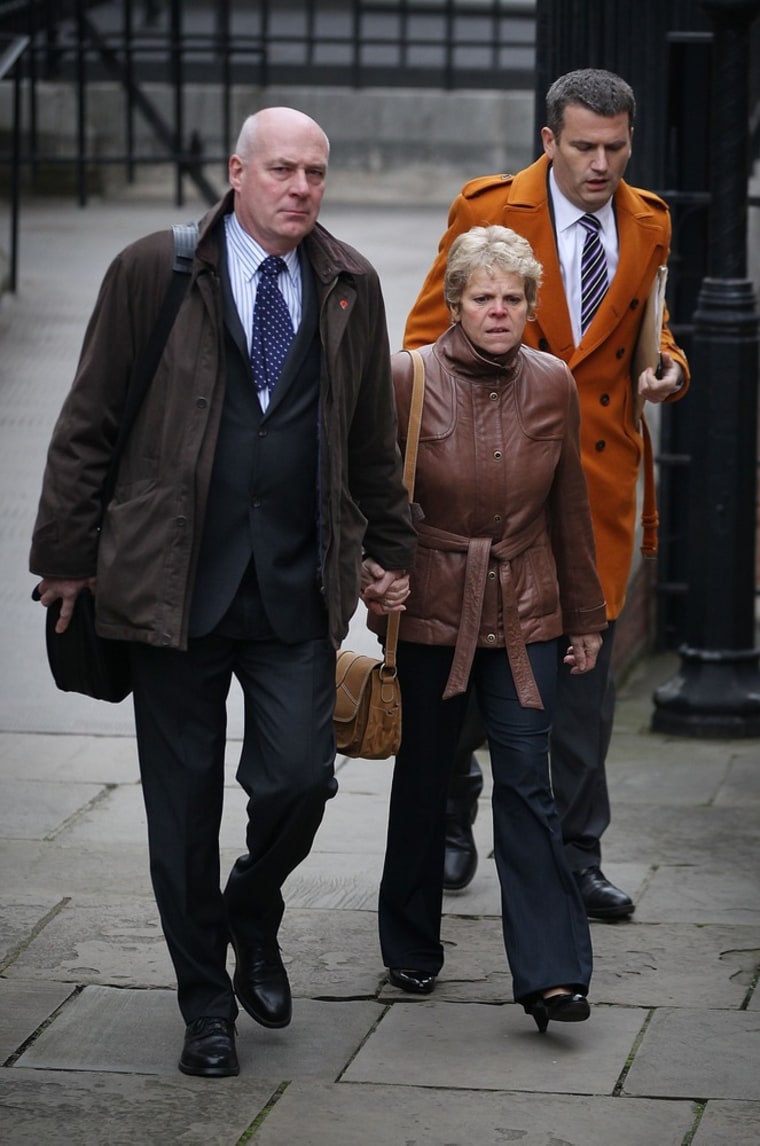British celebrity Hugh Grant and the parents of a murdered schoolgirl confronted their tabloid tormentors on Monday, testifying at a public inquiry into phone hacking and British newspaper standards.
For the first time, Grant implicated a newspaper not owned by Rupert Murdoch in the wrongdoing — British tabloid The Mail on Sunday. He claimed his phone was hacked by the paper in 2007.
He also criticized The Daily Mail, the weekday sister of The Mail on Sunday, for its coverage of the recent announcement of the birth of his daughter, saying it had paid a former lover of the girl's mother $150,000 (125,000 GBP) to obtain private pictures of her.
The inquiry, headed by senior judge Brian Leveson and due to last a year, will make recommendations that could have a lasting impact on the media industry, possibly leading to tighter rules or at least an overhaul of the current system of self-regulation.
Earlier on Monday, Sally and Bob Dowler, the parents of murdered schoolgirl Milly Dowler, whose phone was hacked by one of Murdoch's UK newspapers, spoke about the heartbreak caused by the hacking.

Mrs. Dowler recounted the false hope caused by hackers who had deleted the teenager's voicemail messages, giving the impression she was still alive and using her mobile phone.
She said: "At first we were able to leave messages and then her voicemail became full.. so I was used to hearing that. We'd gone ... to look at ... CCTV and I rang her phone and it clicked through on to her voicemail and I just jumped and said: 'She's picked up her voicemails Bob, she's alive'."
She also said she did not sleep for three nights after learning of the phone hacking in July.
Last Wednesday, the lawyer representing 51 clients who say they have suffered at the hands of the press delivered a withering critique of newspapers which he said had resorted to unacceptable, "tawdry" tactics to find exclusives.
Three of those he represents say they believed papers' hounding had contributed to family members committing suicide or attempting to kill themselves.
"When people talk of public interest in exposing the private lives of well-known people or those close to them, this is the real, brutally real impact which this kind of journalism has," lawyer David Sherborne said.
All were targeted to get stories to make money for the papers, he told the inquiry. "That's why it was done: to sell newspapers. Not to detect crime or to expose wrongdoing, not to protect society or for the public good."
Most of the focus of the inquiry so far has fallen on News International, the British arm of News Corp, whose lawyer has admitted that phone-hacking was widespread until 2007, when one reporter was jailed, and possibly beyond.
However, Sherborne has made it clear that it is all papers' activities that deserve to be scrutinized and reformed.
Lawyers for Britain's major newspaper groups have already pleaded for the essence of that system to remain and said that the press actually needed more freedom to expose wrongdoing.
"I want this inquiry to mean something," Leveson said. "I am ... very concerned that it should not simply form a footnote in some professor of journalism's analysis of the history of the 21st century while it gathers dust."
Central to discussions will be what constitutes public interest, and whether paying for so-called "kiss and tell" stories about well-known figures private and sex lives could be justified.
Sherborne said the majority of Britons saw no reason for phone-hacking or similar "what is called news-gathering".
"What the public are interested in, in the first sense, sells more newspapers: celebrity gossip, generally tittle-tattle," he said. "What the public have a genuine interest in knowing about: drug trials, what goes on in Europe with the Central Bank and so on, mostly doesn't."